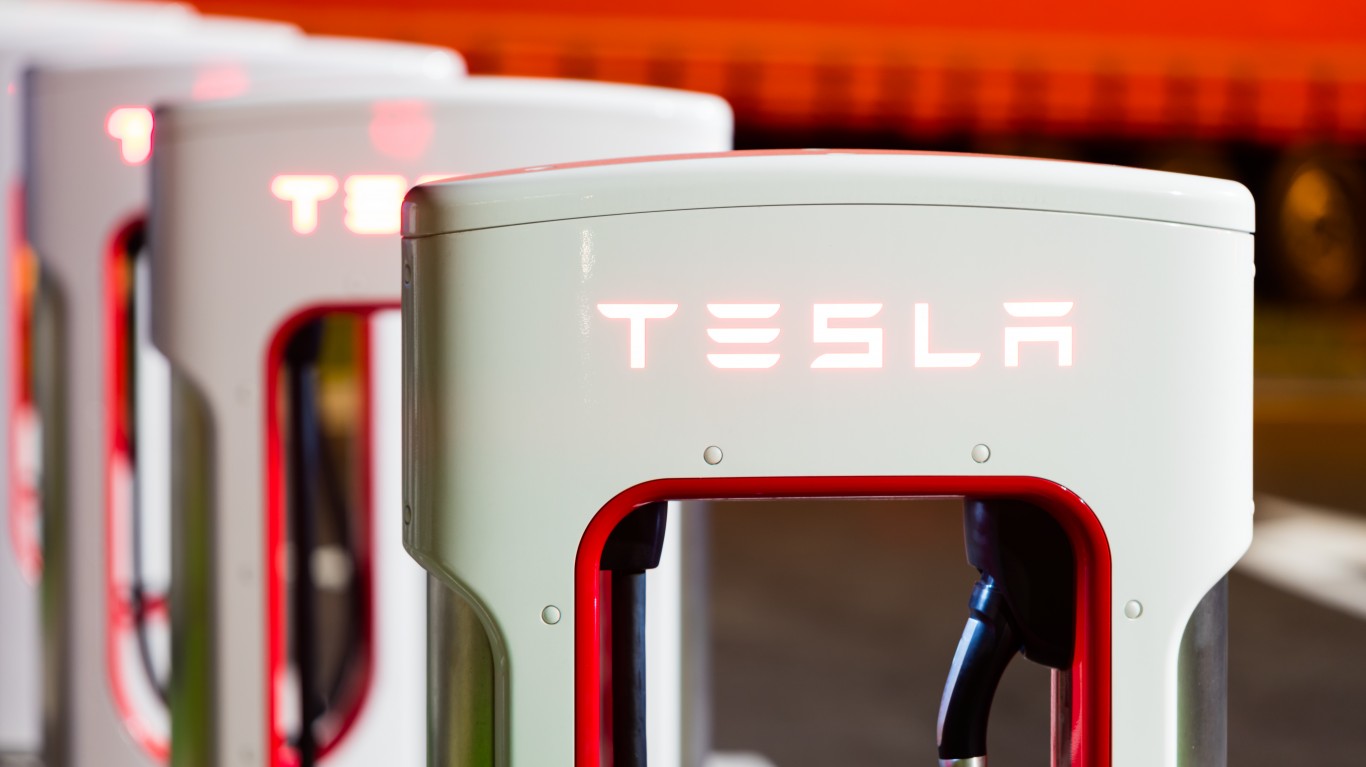
Tesla, Inc (NASDAQ: TSLA) trades at an all-time high of $1,277. That puts its market cap at $235 billion, just shy of Intel Corporation (NASDAQ: INTC), the world’s chip giant, which has a market cap of $253 billion. At least one analyst believes Tesla’s share price will rise to $2,000, which would put it well ahead of Intel.
Intel has long been the largest manufacturer of chips for personal computers and servers. It has also had success with chips used in smartphones. Its business has recently expanded to drones and cable modems which have allowed it to move beyond its traditional profits centers.
First-quarter revenue at Intel rose 23% to $19.8 billion. EPS was up 51% to $1.31. Bob Swan, Intel’s CEO commented: “The role technology plays in the world is more essential now than it has ever been, and our opportunity to enrich lives and enable our customers’ success has never been more vital.”
However, despite its advances in chip technology, and its upcoming role in the expansion of superfast 5G wireless, there is a temptation to view Intel has part of technology’s past particularly because of its concentration on chips for traditional computing and server sectors.
When compared to Tesla, there are two primary differences between the two companies. The first is obviously size.
Tesla had revenue of $6 billion in the first quarter, which is up 32% from the same period a year ago. Of that, $5.1 billion was from automotive operations. Net income was a mere $16 million. If its revenue accelerates at a similar rate for the balance of the year, automotive revenue may reach $25 billion. However, the COVID-19 pandemic could push that number much lower, though.
Tesla built 102,672 cars in the period, 33% higher year over year. It delivered 88,496 cars. Perhaps Tesla’s deliveries may reach 350,000 this year. Once again, the pandemic could shave that down. These contrast to Volkswagen, the world’s largest carmaker by unit sales, which reached 10.97 million last year.
The other is the trajectory of the stock price. Over the last year, Tesla’s is up 414%. Intel’s is down 1%.
From the standpoint of business size, the scale weighs extremely heavily in Intel’s favor. It is impossible to believe that Tesla could match its revenue within the next two or three years. Tesla’s unit sales might drop. Intel’s chip numbers are unlikely to move more than a few percentage points in the foreseeable future. And, the pandemic is not likely to cause a large number of people to halt their PC or server purchases. They are too essential to the day to day lives of most Americans.
The argument on behalf of Tesla’s market cap is that the company is the wave of the future in the car industry. But, it is hard to claim that Intel’s business is stuck in the past. The introduction of ultrafast 5G should help Intel’s top line.
Yet, there is a nagging perception that Intel’s business will not grow by much more low double digits. Tesla could grow much faster than that.
Thank you for reading! Have some feedback for us?
Contact the 24/7 Wall St. editorial team.





